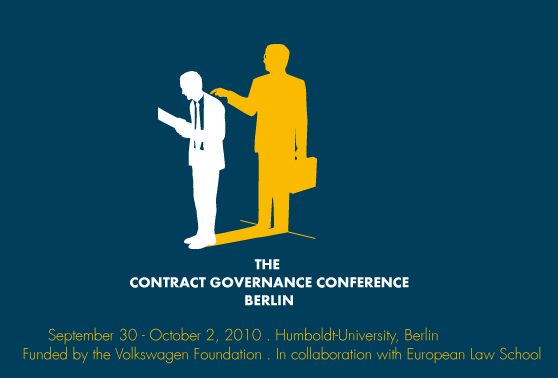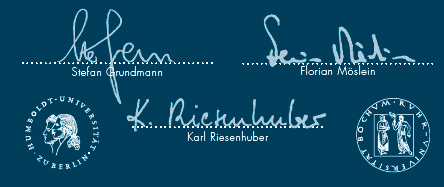

The global financial crisis was mainly rooted in the instability of markets. Most governance structures in which we find its causes were therefore contractual relationships: the (subprime) loans; the arrangements which allowed a passing-on of the risk (via securitization); the assignment of rating firms, but also the employment of brokers in the investment banks (with competition for good brokers). It may well be that some relationships were embedded in corporate structures, and certainly the particular field of banking (prudential) supervision was largely involved. Yet the crisis could not be conceived without contractual relationships.
This, however, only adds impetus to a research which would be interesting anyhow, a research about the stability and constitution of contractually organised mass transactions, typically of long duration. Two main reasons for the importance of such a perspective stand out: First, contract law research, namely in the European context, has not followed the change from an industrial to a service and knowledge based society. Reality, however, is different: Long-term relationships, contract relationships of co-operation, relationships of trust with an ongoing and intensive exchange of information and of inputs and with a high amount of cross-decision powers between the parties. Second, the multiplicity of contract partners, namely in networks of contracts, but as well in the case of parallel behaviour, is a phenomenon which is paramount in real life but still little discussed.
The concept of »Contract Governance« would seem to describe well the panorama of these topics. This term points to the other governance discussions, among them perhaps most prominently the Corporate Governance discussion and its breathtaking development. This discussion is a »meeting-point« of all disciplines concerned. This discussion is genuinely international. This discussion is also integrative in style, focusing on problems in their respective contexts and on cross-influences between them. Finally, this discussion is as well about how to shape the rule-setting environment itself in order to find the way to good rules.
This Conference embarks on the path of »Contract Governance«, and does so choosing four core issues in the large ocean of »Contract Governance«: Third Party Effects of the Contractual Relationship. Long-term Relationships. Networks of Contractual Relationships. Rule Setting as Such. The Conference is aimed at initiating an ongoing process.









